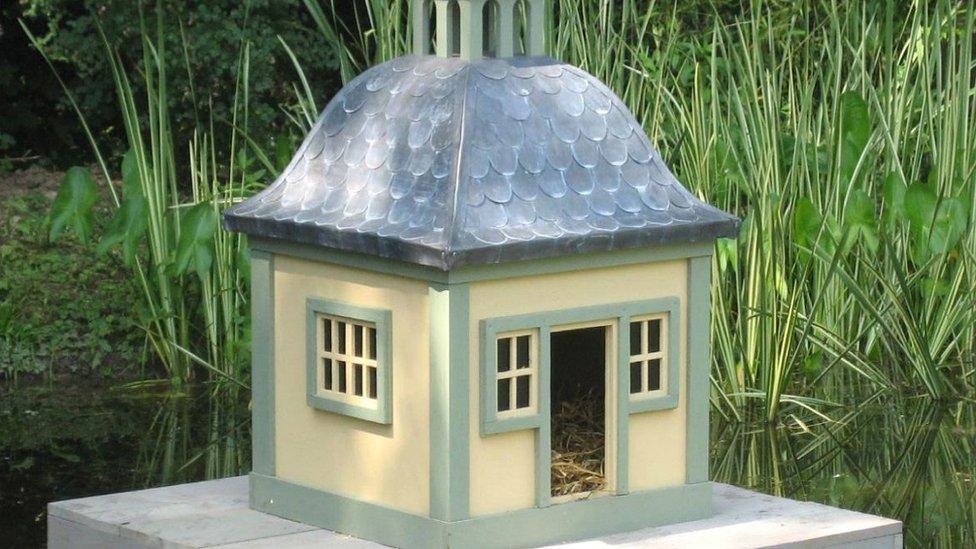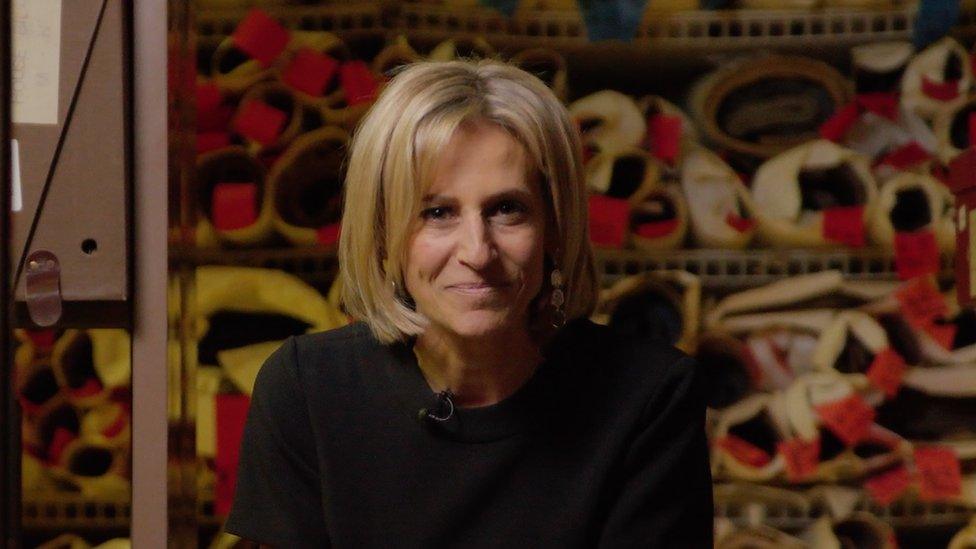MPs' expenses: The scandal that changed Britain
- Published

Former Tory MP Sir Peter Viggers claimed expenses for an island to house the ducks in his pond
Ten years on from the MPs' expenses scandal which exposed just what politicians had been claiming, I still catch myself, occasionally, thinking of individual parliamentarians by their corresponding household object.
The Hobnobs and the trouser press, the duck house and the wisteria. The loo seat - make that two loo seats - and the lamps.
It is a reminder of the power the story had at that time to make the public scream with anger and laugh with incomprehension.
There were greater crimes of course than the purchasing of a pair of curtains - seven parliamentarians were sent to jail for false accounting, some of it mortgage fraud.
And of course, there were others who never touched public money and emerged from the whole episode unscathed.
The story unfolded in a six-week expose by the Daily Telegraph. It touched a public nerve at the time.
It came in the wake of the financial crash when belts were tightened and the pain was felt across the country. It came in the years following the Iraq war - when many felt they had been sold lies by the government of the day.
The expenses scandal exposed a kind of wholesale wrongdoing. It wasn't about individuals - despite their memorable home appliances - it was the sense of a systemic rot that people were only just beginning to understand.
Fast forward ten years and we have a parliament paralysed. A leader who can't listen. And a public who are furious with what they perceive as another wholesale failure of the political class.
And the germ of an idea begins to form in my head. I want to find out - how much of the breakdown of trust that we can feel now, can be traced back to that febrile time ten years go?
Ultimately, I want to know if the anger over expenses played any part in the eventual decision we made to vote to leave the EU.
At first it seems far-fetched. There is nothing worse than trying to shoehorn an argument into a prepared theory. But then I start to talk to people and I am astonished by what I learn.

'I want to find out, how much of the breakdown of trust that we can feel now, can be traced back to that febrile time ten years go'
Several MPs use the same phrase to me: "People say they hate MPs as a breed. But then they will tell you that actually they very much like their own."
One former MP - a proud Brexiteer - tells me he thinks it was the beginning of the moment the public turned their back on the political elite thinking they had all the answers .
"I always believed that we were better at governing ourselves and if so, then my own loss of seat (in the 2010 election) was not in vain," they say.
I hear from the families of MPs who describe that moment as one of the most cataclysmic of their political and personal lives.
Others, who won't go on camera, tell me they were "thrown to the lions" by their whips and their party leaders. Off the record they will lament the sensationalised coverage and describe the press as "that most dangerous of things - the lashing out of a dying animal".
Some have come to terms with what happened. Some blame the system that encouraged them to "fill their boots'. Some insist to this day they did nothing wrong and that the public anger was confected by the media's portrayal of MPs.
And we hear from the woman who arguably brought the whole issue of expenses into the light - freedom of information campaigner Heather Brooke.
She tells me Brexit has done a lot of "heavy lifting" for things that were never given voice to at the time of the MPs expenses, that built up "like a pressure cooker" until they were all released through one tiny hole of the referendum.
In the hour-long documentary we piece together the drama of those heady few weeks, how the story broke, what each side got wrong and the impact it had at the time.
But we go much further, asking if opportunities were missed at the time to rebuild the relationship that had become so damaged, whether that be through reform or through a different kind of political system.
We ask if MPs should carry out their constituents will. or be their own judge of what is right - and how long our representative democracy can survive the blunt instrument of referendum.
The documentary doesn't - spoiler alert - solve the Brexit conundrum we're currently living and breathing.
But it may be useful in understanding the roots of the relationship we currently see between the public and the political class.
You can watch Expenses: The Scandal That Changed Britain (A Newsnight Special) Monday 25 March, 9pm, BBC Two or on iPlayer.
You can watch Newsnight on BBC Two weekdays at 22:30 or on iPlayer, subscribe to the programme on YouTube, external and follow it on Twitter., external